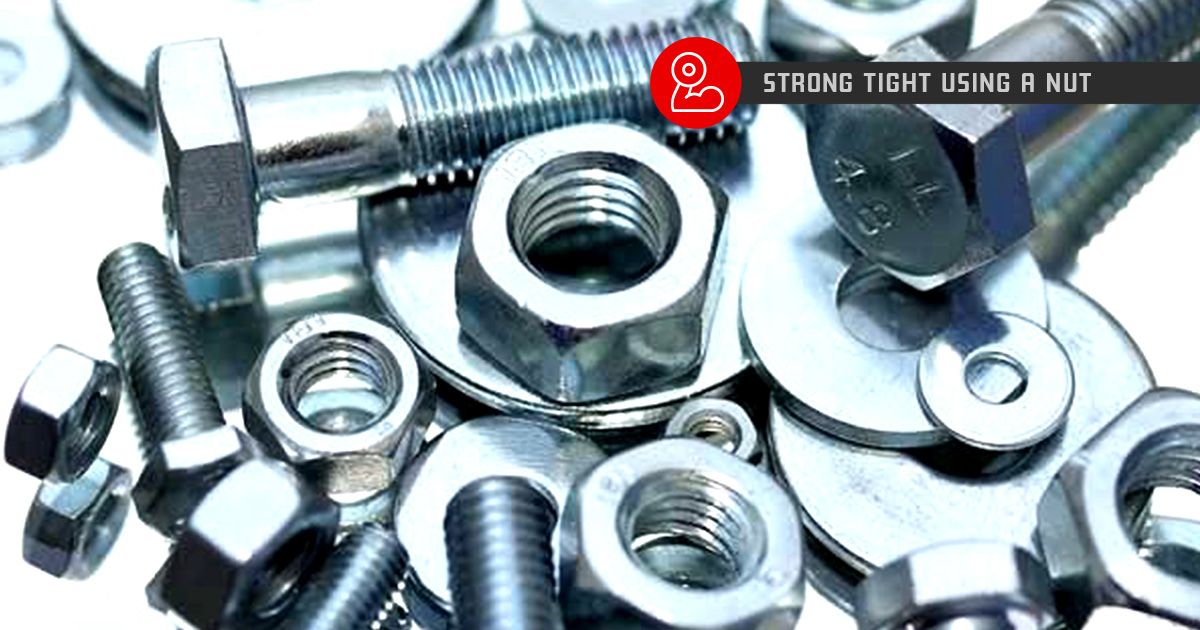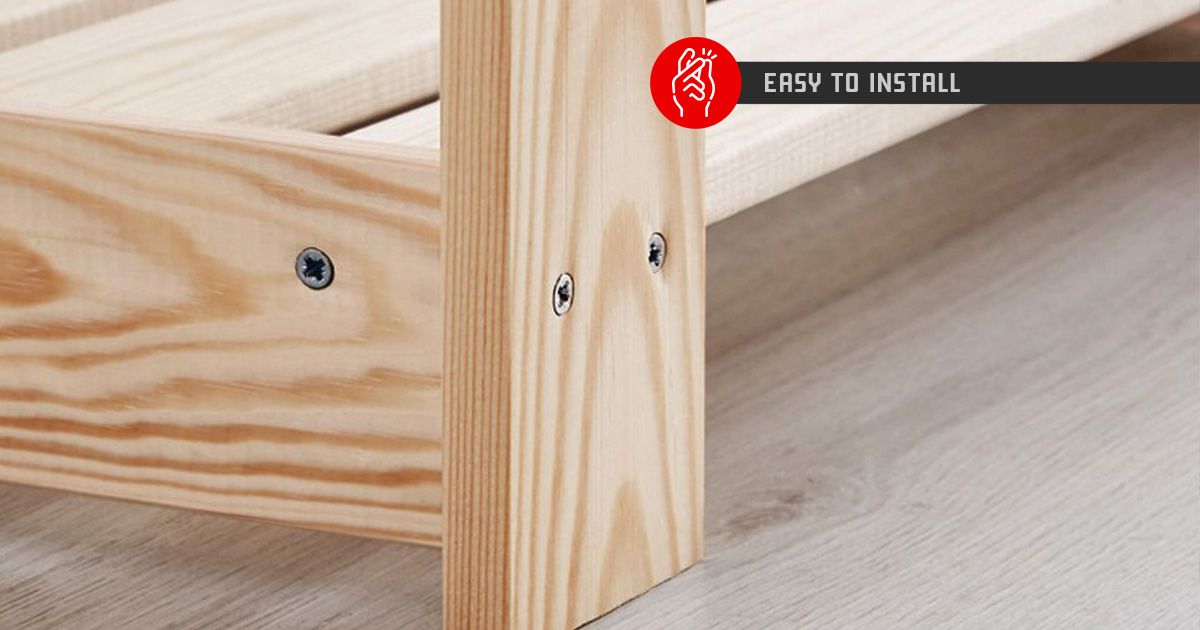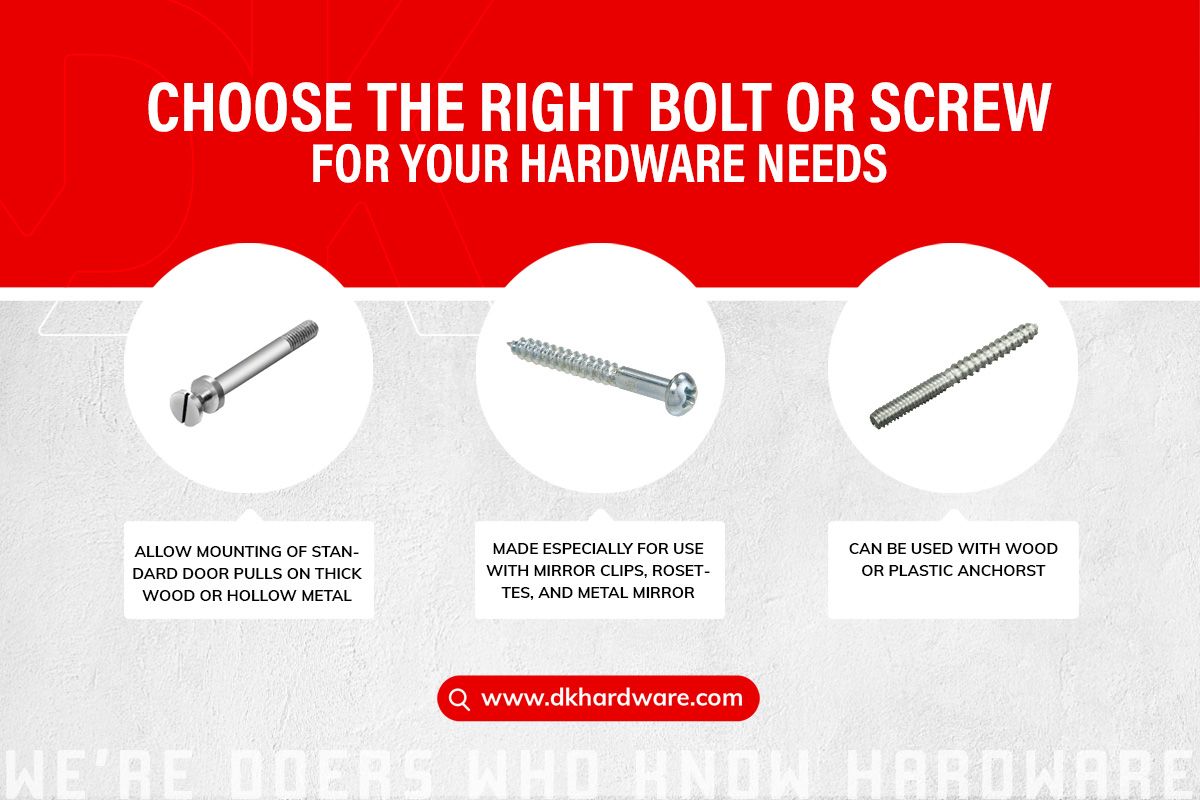What’s the Difference between Bolts and Screws?
As most people commonly presume, bolts and screws refer to the same fastening hardware, little do they know they are wrong. Though both of them might look similar and have similar characteristics, they are completely different from each other, boasting different functions. So, what’s the difference between bolts and screws? Read on to know.

What are Bolts?
Bolts are designed to be installed with a suitable nut. The hole for a bolt is not tapped as the bolt is pushed through and is fixed and tightened using a nut at the back of the material being fastened. So, a bolt will be longer than the width of the material it is being used on, as it needs to protrude through to the other side to screw into the nut. The unthreaded portion of the bolt, typically the inside material adds strength, making it more resistant to shear forces, compared to fully threaded screws. Bolts are usually fastened using a spanner or other tool which grips the head whilst the nut is tightened. Below are some of the best options that DK Hardware has:
1) Long Hanger Bolt for Standoffs - HB14112S
2) Through-Bolts for Thick Glass - TB2CH
3) Through-Bolts for Thick Door Handle – DH004AL
What are Screws?
A screw is usually installed into a tapped hole unless it is a self-tapping screw that creates its own thread. Screws don’t need nuts, as they become secure by being tightened into the hole with a screwdriver or driver bit, which fits into the drive recess. Generally speaking, screws are shorter than the width of the material they are being screwed into so that they don’t protrude onto the other side. Below are some of the best options that DK Hardware has:
1) Hex Washer Head Self-Drilling Screw - 20092003
2) Round Head Nickel Plated Wood Screw – 6X114RHNPWS
3) Pan Head Spanner Tamperproof Machine Screw – TP1024X12PMS
4) Pan Head Phillips Machine Screw – 632X34PMS
Also, it is worth noting that screws must be turned to assemble a joint, while bolts can be secured in place using a tool or a carriage bolt. However, bolts are typically designed to make a bolted joint by using a nut to apply force while using the shank to act as a dowel. This securely pins the joint against sideways forces. Due to this, many bolts have an unthreaded shank; thus, making them more effective for dowels. In short, the basic difference between screws and bolts is that the former is used to assemble threaded objects, while the latter is used to assemble untreated objects. That being said, screws can make their own threads during the installation process.
There are also 1000s of variety in screws, some of which include chipboard screws, particleboard screws, deck screws, drive screws, hammer drive screws, drywall screws, eye screws, dowel screws, wood screws, twin fast screws, security head screws, and sheet metal screws. Some of the different head shapes in which screws are available include pan, button, round, mushroom, oval, bulge, cheese, fillister, and flanged. And like their bolt counterparts, screws are available in a range of materials.

Why do We Need to Know the Difference?
Being able to distinguish bolts from screws is important for several reasons. Product design, manufacture, and maintenance all require the ability to identify specific components without ambiguity. Knowing the difference between the two is particularly important in cooperation between engineers and purchasing departments, where the former relies on the latter to follow instructions to the letter. In more recent times, knowing the exact terminology for a component has also become crucial in finding the correct components online.
DK Hardware features a wide range of screws, bolts, nuts, and washers that can be used for a wide range of purposes. With different types, sizes, and finishes, these are a complete must-have for all your fastening needs. Click on any link on this blog to be redirected to some of the best options.

For any specific questions, feel free to reach out to us!
For quotation contact via email: sales@dkhardware.com or
Toll-Free: 877-509-8040